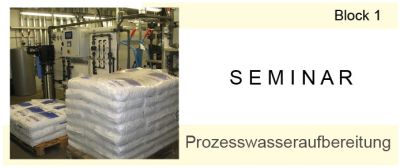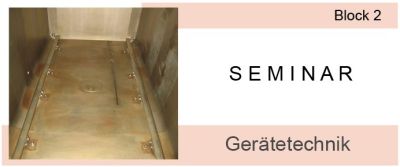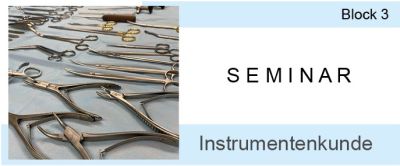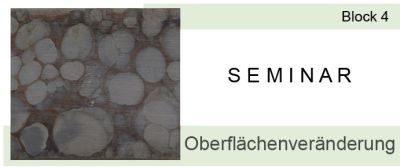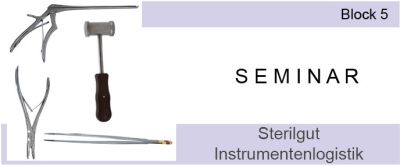Demineralised process water: Seminar series on sterile goods processing
Seminar series on sterile goods processing
HeylNeomeris is a solution developer, consultant and training provider. With our in-depth expertise along the process chain of sterile goods processing in clinics, hospitals, outpatient centres and medical centres, we provide you with theoretical and practical expertise for the entire sterile goods processing process.
Our seminar series on sterile goods preparation covers a range of topics that take a holistic view of the sterile goods preparation process. You have the option of combining the topics that are relevant to you and putting together the perfect seminar programme for you. You will receive further training points for attending the seminars (“Registration® of Professional Nurses”).
You can attend the following topics at HeylNeomeris or book them as in-house training at your premises:
- Process water treatment
- Equipment technology, components and accessories
- Instrumentology
- Surface changes – recognising causes and prevention
- Sterile goods – instrument logistics
Process water treatment
Employees of AEMP, ZSVA and building services, as well as management, technical management, purchasing management and executive management
The aim of the seminar is to establish 100% media safety in the treatment of process water in order to minimise the process risk for the manufacture of medical devices as far as possible.
For many years, the importance of the requirements for the hygiene of medical devices has been continuously increasing. The process of water treatment for sterile processing is closely linked to this. This is already defined in DIN EN 285 for feed water and condensate.
The limit values for feed water and condensate specified in the currently valid standard continue to lead to premature wear of the system technology, sterile equipment and instruments, according to many years of practical experience. Therefore, they do not fulfil the hygienic requirements for a sterile, contamination-free medical product or the protection of patients and investments.
This seminar block 1 presents the current state of the standard in comparison to the state of the art and knowledge in short lectures. A safety concept for medical care for safe process water treatment will be presented in a joint group work based on practical examples.
Equipment Technology
Target group: Managers and employees in building services, CSSD and AEMP
The aim of the seminar is to avoid and prevent the costs of renovating or replacing equipment and systems, including the renewal of entire supply systems. The reprocessing of sterile goods is protected by risk indicators, components and elements in the media supply, which minimises risks in the treatment and reprocessing of medical devices. Steam sterilisation is a very delicate and challenging part of the processing of medical devices. Process water and steam present in the steriliser (autoclave) have a direct negative impact on the instruments. From a hygiene point of view, they represent an unconsciously high and cost-intensive process risk that in reality poses serious risks to patient safety.
In practice, it is clear that the limit values for feed water and condensate, which are specified in the current DIN EN 285, lead to quality defects in the device technology, the components and the entire sterile processing system at an early stage in this process.
This seminar block shows the effects of process water quality on the technology used in sterile goods processing and the overall process, taking into account the current state of knowledge and technology. Potentials for avoiding follow-up costs and new purchases are developed through a holistic approach to the sterile goods processing process, and convincing facts are conveyed that make the participants’ daily tasks easier. This is done using practical examples and in joint group work.
Instrumentation
Target group: Managers and employees of CSSD and AEMP
The aim of the seminar is to ensure the best possible safety for patients by introducing quality elements and quality systems for the procurement, care and maintenance of surgical instruments.
DIN standards 100 and 58 299 provide important regulations for the manufacture of instruments. Appropriate measures for maintaining the quality of the instrument stock are therefore derived. Sustainable reprocessing, handling, care and maintenance of the instruments (medical devices) are of crucial importance for the maintenance costs and the entire product life cycle. Optimised methods for extracting and maintaining the value of so-called “surgical steel” significantly reduce operating costs.
Ralf Kurzrock, our speaker, is an experienced expert in instrument technology. Together with you, he will develop requirements for the quality of the various instrument groups based on the relevant standards, which will ensure sustainable patient safety and long-term instrument utilisation. Quality assurance elements will be defined based on practical examples, recommendations for the optimal use of resources will be given and options for integration into a quality management system will be described.
Surface Changes – recognising causes and prevention
Target group: AEMP, CSSD, building services and hygiene officers and their managers
The aim of this seminar is to avoid daily risks and cost drivers and to ensure patient protection by identifying surface changes, determining their causes and integrating appropriate preventive measures.
During their life cycle, which ranges from procurement to replacement, medical devices are exposed to numerous external influences that inevitably have negative consequences. These range from the unusability of the medical device to being “visually unappealing”.
It has been practically proven that only a comprehensive approach and analysis of the sterile processing chain will enable the necessary solutions to be found to eliminate harmful influences on medical devices.
In this seminar block, our speaker Ralf Kurzrock will explain in detail the exact reasons for surface changes on medical devices. In a joint group activity, you will recognise changes and develop solutions that increase the safety of patients and users.
Sterile Supply Instrument Logistics
Target group: Managers and employees from the CSSD, AEMP and operating theatre departments
The aim of the seminar is to ensure and increase patient safety by highlighting the specific problems that supply and disposal logistics are confronted with in terms of organising supply routes and the intermediate storage of instruments and sterile goods.
The logistics of surgical instruments has a demonstrable impact on the quality of sterile goods processing. The correct delivery of surgical instruments, pre-cleaning, storage locations and the flow of incoming and outgoing goods are crucial to maintaining the value of existing or newly purchased surgical instruments. By taking a comprehensive look at the instrument logistics process, from the preparation of the operating theatre to the post-operative follow-up, investment security, cost savings and patient safety can be guaranteed or even increased. In this part of the seminar, we will work with you to develop basic rules for logistics flows, quality standards for optimising service lives and concrete suggestions for potential savings in the preparation of the operating theatre.
You will receive further training points for both individual seminars and seminar blocks. There are 8 FBP per individual seminar and 10 FBP per 2-seminar block.
